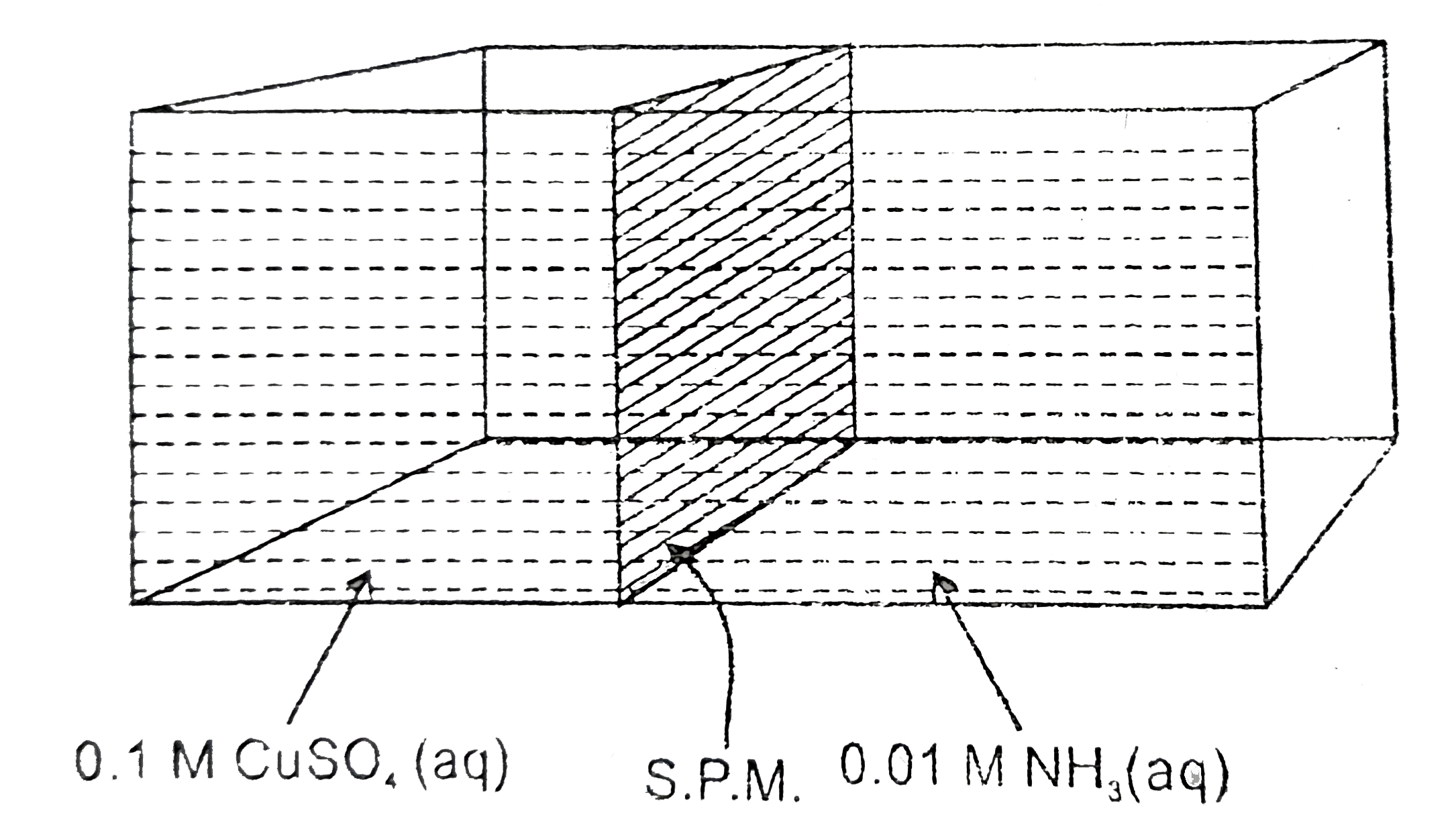Ammonia forms the complex [Cu(NH3)4]2+ with copper ions in alkaline solution but not in acid solution. The reasons for it is:
In alkline solution Cu(OH)2 is precipitated which is soluble in exces of alkali
Copper hydroxide is amphoteric substance
in acidic solution hydration protects Cu2+ ions.
In acidic solution protons are coordinated with ammonia molecules forming NH4++ ion.
The correct Answer is:D
Cu2+(aq)+4NH3OH−⇐=⇒[Cu(NH3)4]2+
Cu2+(aq)+4NH3OH+⇐=⇒Cu2++4NH+4 (No complex formation)
As NH3 combines with H+ of acid and changes to NH+4 which have no donor site.
Topper's Solved these Questions
- CO-ORDINATION COMPOUNDSBOOK - VK JAISWAL ENGLISHCHAPTER - CO-ORDINATION COMPOUNDSEXERCISE - LEVEL 3 (PASSAGE TYPE)
98 Videos
- CO-ORDINATION COMPOUNDSBOOK - VK JAISWAL ENGLISHCHAPTER - CO-ORDINATION COMPOUNDSEXERCISE - ONE OR MORE ANSWERS IS/ARE CORRECT
71 Videos
- CHEMICAL BONDING (BASIC)BOOK - VK JAISWAL ENGLISHCHAPTER - CHEMICAL BONDING (BASIC)EXERCISE - SUBJECTIVE PROBLEMS
54 Videos
- d-BLOCK ELEMENTSBOOK - VK JAISWAL ENGLISHCHAPTER - d-BLOCK ELEMENTSEXERCISE - ASSERTION-REASON TYPE QUESTIONS
32 Videos
Similar Questions
Ammonia forms the complex [Cu(NH3)4]2+ with copper ion in alkaline solution but not in acidic solution. This is due to the reason that :
View SolutionAmmonia form the complex ion[Cu(NH3)4]2+ with copper ions in the alkaline solution but not In acidic solution.What is the statement-2 for it?
View Solution
Knowledge Check
When excess of aqueous KCN solution is added to an aqueous solution of copper sulphate , the complex [Cu(CN)4]2− is formed . On passing H2S gas through this solution no precipitate of CuS is formed because
Asulphide ions cannot replace CN− ionsB[Cu(CN)4]2− does not give Cu2+ ion in the solutionCsulphide ions from H2S do not form complexesDsulphide ions cannot replace sulphate ions from copper sulphate solution .
Magnetic moment of [Cu(NH3)4]2+ ion is
View SolutionHow many ions are produced from the complex, [Co(NH3)6]CI2 in solution ?
View SolutionWhy is an aqueous solution of NH4Cl acidic ?
View SolutionCalculate the EAN of copper in [Cu(NH3)4]2+
View SolutionIn solution, the complex, [Pt(NH3)6]Cl4 gives
View SolutionIn which solution side complex [Cu(MH3)4]2+ will form and deep blue colour will obtain.

View SolutionIn neutral and faintly alkaline solutions, permanganate ion oxidises thiosulphate ions to form
View Solution
